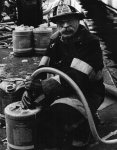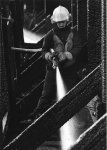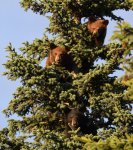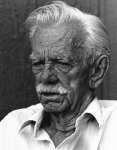boloney - It is not - If you are familiar with colorperfect and other tools and methods - It is VERY useful - especially for filming cinematic video - I have to defend it because there are a lot of naysayers on here - Zone is alive and well as much as pipe smokingPro photographer Michael Freeman has stated that the Zone System is practically useless for digital. I concur.
Exposing for film and exposing for digital follow rather opposed approaches. With the one you need to watch the shadows, whereas with the other you must be careful not to blow out the highlights.
Any Photographers On The Site?
- Thread starter Tommy Boy
- Start date
You are using an out of date browser. It may not display this or other websites correctly.
You should upgrade or use an alternative browser.
You should upgrade or use an alternative browser.
SmokingPipes.com Updates
Watch for Updates Twice a Week
- Status
- Not open for further replies.
The "Zone System" can be applied in digital but, as good as sensors are ... it's hardly necessary. I'll concede that knowledge of the "Zone System" may help when configuring your camera in the "manual" mode. But, internal massaging of the data is so far advanced, as are the current sensors (Thank you Sony.), that the range of contrast now available to shooters is, far and away, superior to what the "zone" was developed for. (I'm speaking only to full sized sensor cameras. Only large pixels are capable of capturing sufficient information for enlargements with an extremely wide range of contrast.)
The "Zone System" may be something some wish to take into consideration when preparing to take a static shot but, certainly not a requirement for an exceptional shot in my opinion. I suppose it's simply what one is comfortable with. Still, I'll assert today's sensors, lenses, internal software and post processing software far surpass the "Zone System" except maybe for those conversant with the "system" who may make use of it for reference purposes. I never give it a thought anymore and I've been shooting for 60+ plus years. Ansel simply isn't relevant anymore except for those still using negatives and shooting in black and white. (An opinion only guys. I find the "zone" irrelevant for the type of shooting I do.)
It is, in the end, a personal choice, just another tool to get to the image you desire. It's much easier to expose for what you desire, shadows, highlights or a combination of both and make any necessary adjustments in post.
The American Bald Eagle is a subject I often shoot. The white head and light gathering brown body make this a complicated shot if sufficient detail is to be captured in the two extremes. I can't approach the subject with a reflector to lesson the contrast so, I meter for the head and allow the sensor to capture sufficient detail in the darker, less reflecting body feathers. If I have the detail I can balance in post. (If I "blow out" the highlights I don't have a even a salvageable shot.) They are a tough subject! This is why I set up the camera for the target subject before I leave the house. (This preparation even works sometimes. Don't for get the adage, "The lens desired is usually back in the truck or at the house.")
I'm not addressing video as the OP didn't mention such. I will anyway to assist in explaining my position. Video is, if shooting with serious intent, a totally different can of worms. The end result of a video needs to cover, without too much range, only a moderate amount of contrast. Video, commercial stuff, requires balancing light before the camera is even turned on. Proper video often requires multiple light sources, usually modified with snoots, umbrellas, reflectors, and the like. Extremely technical in my opinion.
I don't shoot commercial video as I really have no interest in such. Jesse is probably the most knowledgeable member when it comes to "movin' pitchers." Maybe he'll chime in. I'm not even sure how much cinema is shot in digital at this time. But, I do know light is severely controlled in commercial videos as blowout" simply isn't tolerated.
The "Zone System" may be something some wish to take into consideration when preparing to take a static shot but, certainly not a requirement for an exceptional shot in my opinion. I suppose it's simply what one is comfortable with. Still, I'll assert today's sensors, lenses, internal software and post processing software far surpass the "Zone System" except maybe for those conversant with the "system" who may make use of it for reference purposes. I never give it a thought anymore and I've been shooting for 60+ plus years. Ansel simply isn't relevant anymore except for those still using negatives and shooting in black and white. (An opinion only guys. I find the "zone" irrelevant for the type of shooting I do.)
It is, in the end, a personal choice, just another tool to get to the image you desire. It's much easier to expose for what you desire, shadows, highlights or a combination of both and make any necessary adjustments in post.
The American Bald Eagle is a subject I often shoot. The white head and light gathering brown body make this a complicated shot if sufficient detail is to be captured in the two extremes. I can't approach the subject with a reflector to lesson the contrast so, I meter for the head and allow the sensor to capture sufficient detail in the darker, less reflecting body feathers. If I have the detail I can balance in post. (If I "blow out" the highlights I don't have a even a salvageable shot.) They are a tough subject! This is why I set up the camera for the target subject before I leave the house. (This preparation even works sometimes. Don't for get the adage, "The lens desired is usually back in the truck or at the house.")
I'm not addressing video as the OP didn't mention such. I will anyway to assist in explaining my position. Video is, if shooting with serious intent, a totally different can of worms. The end result of a video needs to cover, without too much range, only a moderate amount of contrast. Video, commercial stuff, requires balancing light before the camera is even turned on. Proper video often requires multiple light sources, usually modified with snoots, umbrellas, reflectors, and the like. Extremely technical in my opinion.
I don't shoot commercial video as I really have no interest in such. Jesse is probably the most knowledgeable member when it comes to "movin' pitchers." Maybe he'll chime in. I'm not even sure how much cinema is shot in digital at this time. But, I do know light is severely controlled in commercial videos as blowout" simply isn't tolerated.
Yes, I'm working on something good - it'll be ready soonMight you post a few videos?
Indeed. I got a number of clients/prospects ask me if I also did video in addition to commercial photography: my short answer: NO. Long answer: just because my DSLR can shoot video doesn't mean **I** can.Video is, if shooting with serious intent, a totally different can of worms. The end result of a video needs to cover, without too much range, only a moderate amount of contrast. Video, commercial stuff, requires balancing light before the camera is even turned on. Proper video often requires multiple light sources, usually modified with snoots, umbrellas, reflectors, and the like. Extremely technical in my opinion.
Once, just for the heck of it, I grabbed a book on video shooting with DSLR and quickly proved my long answer right: completely different kind of worms and a whole plethora of extra accoutrements required to produce decent, let alone professional results. I returned the book to the public library and never delved into it again.
I dont know what most of the stuff you guys are discussing but it sounds like there will be a lifetime of learning if thats the path she chooses to go down. So far i haven't located a descent used canon T6 or T7. I'm still looking though. It looks like i can get a new one on Amazon for about the same price as used on ebay if thats how it shakes out. Again if anybody has one they aren't using and wants to sell it PM me.
Check the Canon website for refurbished. They'll have a warranty and the price should be decent. Spending your lifetime learning is a grand thing indeed. You give her a few weeks with a camera, some pointers and she'll have the camera basics down pat. Then she'll start developing her "eye" and experimenting with settings and lenses. One of these days she'll discover what she really likes to point a lens at. Or, worst case scenario, she loses interest completely.
My learning these days is pretty much learning a new camera. But, I'm forever experimenting plus, ion the sprig I have to work on flying bird captures. I tend to slack off on the shooting in the winter. Lazy? Perhaps. But, I'm getting to the age where I don't handle "cold" as well as I used.
The beauty of the camera is that if she loses interest, it's a skill she can easily regain when she's older as she'll still have the knowledge.
Another piece of advice for the new shooter, keep your camera handy all the time. And, don't forget the phone works for those times the camera is in the car or at home.
My learning these days is pretty much learning a new camera. But, I'm forever experimenting plus, ion the sprig I have to work on flying bird captures. I tend to slack off on the shooting in the winter. Lazy? Perhaps. But, I'm getting to the age where I don't handle "cold" as well as I used.
The beauty of the camera is that if she loses interest, it's a skill she can easily regain when she's older as she'll still have the knowledge.
Another piece of advice for the new shooter, keep your camera handy all the time. And, don't forget the phone works for those times the camera is in the car or at home.
At the risk of starting to sound like an echo, I too suggest a brand new or at least refurbished camera. "Estate" cameras, well, let's say if I were to sell you my XSi you'd get a camera in near mint condition, but you'll have to buy it a new battery immediately. That'd be $50 on top of the camera.
Olkofri makes a great point. Used cameras can be mistreated, loose internals, exterior blemishes (not usually a problem but, indicative or rough handling.) etc. There are also, on the web, some reputable camera stores which sell used cameras and you can trust their ratings for the most part. I sell my used gear to a couple of them, Adorama being my go-to.
Remember, only the best for daddy's girl.
Remember, only the best for daddy's girl.
Thanks for the good advise guys. Ill look on the canon website and see if they offer refurbished cameras. Hey Warren are any of your photos on a website or somewhere we can view them? I think my daughter and myself would enjoy viewing some of your nature pictures. Or care to share a few on here? Okay thanks again guys.
Indeed. I got a number of clients/prospects ask me if I also did video in addition to commercial photography: my short answer: NO. Long answer: just because my DSLR can shoot video doesn't mean **I** can.
Once, just for the heck of it, I grabbed a book on video shooting with DSLR and quickly proved my long answer right: completely different kind of worms and a whole plethora of extra accoutrements required to produce decent, let alone professional results. I returned the book to the public library and never delved into it again.
I agree. Video is an entirely different kettle of fish from shooting stills. I'd also agree that the debate about the zone system applicability to video isn't very helpful. It's just not a technique people in the film industry use, nor is it taught in film school as a strategy. The whole motivation for Ansel Adams developing the zone system was to overcome the limited range of tones that was possible with black and white paper. It's a different media with a different set of problems. These days we have colorists who specialize in grading video. They still confront the problem of limited latitude that Ansel Adams faced, at least in the sense that you're still fighting for detail in the shadow and in the highlights, but the solutions cinematographers and colorists use today are different. I imagine you could break down color video into zones... but nobody does that on set or in post. Cinematographers use vectorscopes and waveform monitors to figure out where they're likely to lose detail in a shot. They're not thinking about zones.
Indeed. I got a number of clients/prospects ask me if I also did video in addition to commercial photography: my short answer: NO. Long answer: just because my DSLR can shoot video doesn't mean **I** can.
Once, just for the heck of it, I grabbed a book on video shooting with DSLR and quickly proved my long answer right: completely different kind of worms and a whole plethora of extra accoutrements required to produce decent, let alone professional results. I returned the book to the public library and never delved into it again.
You got that right.
As I was learning the photography part of being a military photojournalist back in 1975, I was cross-trained in shooting 16mm with a Bell&Howell handheld motion picture camera and with what passed as video back then - 1/2-inch reel to reel video recorder and video camera. I was happy when the Coast Guard finally switched to the Betamax Camcorders back in the mid-1980s.
Back then it was very hard to put down a still camera and pick-up the camcorder and start shooting. Not because I didn't like still photography, but because the thought processes behind what you are doing was so different. We learned early on that if we wanted both stills and video, it was a two-man job.
Not sure how I did that. Sorry. That's a shot from a couple of years ago. I post photos rarely due to the possibility of theft and misuse.
She will love that photo thanks for sharing it. There has to be a story behind a picture like that i would think. As far as you talking about photographing bald eagles they are making a comeback in S.W. Michigan finally. We have a pair on a lake about 20 min. from our house. They are usually in some trees to far away for a picture with a vacation camera though.Not sure how I did that. Sorry. That's a shot from a couple of years ago. I post photos rarely due to the possibility of theft and misuse.
A recent stop at our local Salvation Army store netted me a couple of used books:
• Camera RAW 101 -- Better Photos with Photoshop Elements and Lightroom, by Jon Canfield
• Understanding Exposure (Rev. ed.) -- How to Shoot Great Photographs with a Film or Digital Camera, by Bryan Peterson
Haven't cracked either one as yet. Going digital, you definitely want a functional bit of software to process the digital "negs", especially that can handle working with Camera RAW files. Adobe Lightroom seems to be quite popular for those who don't want to go the full Photoshop route.
• Camera RAW 101 -- Better Photos with Photoshop Elements and Lightroom, by Jon Canfield
• Understanding Exposure (Rev. ed.) -- How to Shoot Great Photographs with a Film or Digital Camera, by Bryan Peterson
Haven't cracked either one as yet. Going digital, you definitely want a functional bit of software to process the digital "negs", especially that can handle working with Camera RAW files. Adobe Lightroom seems to be quite popular for those who don't want to go the full Photoshop route.
Here's a couple of more from back in my Coast Guard days. W
What I like about digital is it's easier to keep your archives safe. While everything we shot while working belongs to the Coast Guard, we were allowed to keep copies of our photographs. Unfortunately, I lost three boxes of photos spanning 10 years in our last move in 1989. Officially the original negatives and prints should be at the National Archives but that would depend on someone having looked at the work and deciding to send it on instead of just throwing it in a dumpster.


Warren, I know what you mean about theft and misuse. These last two photos are actually in the public domain because they were official Coast Guard photos.
What I like about digital is it's easier to keep your archives safe. While everything we shot while working belongs to the Coast Guard, we were allowed to keep copies of our photographs. Unfortunately, I lost three boxes of photos spanning 10 years in our last move in 1989. Officially the original negatives and prints should be at the National Archives but that would depend on someone having looked at the work and deciding to send it on instead of just throwing it in a dumpster.


Warren, I know what you mean about theft and misuse. These last two photos are actually in the public domain because they were official Coast Guard photos.
Speak for yourself - I am thinking about Zones when I am filming - those waveform metering method in digital cinematography is overkill - One of the Best cinematographers Robby Müller (RIP) who shot for Wim Wenders shot a film with Bjork and Catherine Denuvue on a piece of trash Sony minicam in early 2000'sI agree. Video is an entirely different kettle of fish from shooting stills. I'd also agree that the debate about the zone system applicability to video isn't very helpful. It's just not a technique people in the film industry use, nor is it taught in film school as a strategy. The whole motivation for Ansel Adams developing the zone system was to overcome the limited range of tones that was possible with black and white paper. It's a different media with a different set of problems. These days we have colorists who specialize in grading video. They still confront the problem of limited latitude that Ansel Adams faced, at least in the sense that you're still fighting for detail in the shadow and in the highlights, but the solutions cinematographers and colorists use today are different. I imagine you could break down color video into zones... but nobody does that on set or in post. Cinematographers use vectorscopes and waveform monitors to figure out where they're likely to lose detail in a shot. They're not thinking about zones.
Today's cinematographers are a joke compared to the legends.
I still have an Omega B/W 4x5 enlarger sitting in my garage. I may even have an old Navy photography manual in storage.
- Status
- Not open for further replies.









